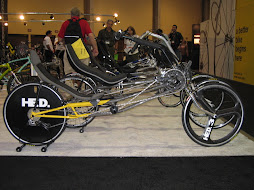Carfree USA and
World Carfree Network are excited by
WSJ article on DB's forecast of
potentially severe constraints on supply in the very near term. What does it mean? Well, it is not good news for China and India, Russia and Eastern Europe. Much of the growth in
the forecast oil demand is due to increasing motor vehicle use in these countries. They have invested a vast fortune in automobile infrastructure, equipment and tooling, and just as they are starting to enjoy this new "economy" they are discovering that it is one that is not sustainable in any way. These countries have a momentum to their automobile economies and will likely continue growing "on the automobile's back". This is bad news for anyone working for the environmental department in China or India, as the wave of international investment in their auto industries threatens just about everything they wish to protect. But perhaps oil at $150 will start to turn this around, and fortunately for them, they are not as far down the road to autopia as the West, so the transition to post-auto economy will not be as painful. Not quite so for the West.
What does $150 oil mean for the USA? Well, aside from the profits to the few US oil companies with reserves this isn't going to be pretty. Gasoline price rises will squeeze US drivers just as US consumers are being hit with inflation elsewhere and a falling dollar as it is hard to see how the Fed slashing rates to mitigate sub-prime fallout will not fuel inflation and a further falling dollar, and yet despite this banks, to shore up balance sheets, will pocket most of the gains from the rate cuts and borrowing costs will rise anyway. So drivers, consumers and borrowers in the US are probably going to be particularly hurt. There will surely be some collateral damage in the corporate sector also, particularly highly leveraged industries as the credit squeeze begins to hit overly geared businesses just as overly leveraged consumers are forced to cut back spending.
Will anyone in the USA gain from all this? Well, quite possibly, just maybe the US
citizen will be better off in the long run. It is quite possible that this could be the tipping point for Americans - a decoupling of Americans from their automobiles, and automobiles from the American dream. As the average Joe begins to have trouble affording their car or the gasoline to power them, as it becomes fashionable to not drive, as average citizen begins to recognize the myriad of environmental hazards automobiles cause coming to a head world-wide as Chinese and Russians begin to drive cars en-mass and cause all the same environmental problems as Americans did for 50 years but on a scale that will have global ramifications (including the yellow sands that actually already blow over into the United States). As this happens, I actually think that average Joe American
citizen just might "get it" by then and decide that the automobile lifestyle is just not the way to go about things in the 21st century. One or two American automobile companies might even go bankrupt, as several seem destined to do - and the American public might even just let them go this time, with niether the political stomach or the cash for any kind of public taxpayer bailout. For after all, that is the capitalist system is it not? Live and let die. If Americans no longer want as many cars, the automakers' resources should be put to better use doing something else. If they aren't, the companies will fail, and be forced to find a better use of their resources (or the resources themselves will have to find a better use of themselves...). In any case, while once the automobile was seen as the symbol of potency and all that is great about America, I have a feeling that in the 21st century Americans could become their biggest detractors.
By then will they be able to save China and India from choking themselves to death by
asphyxiation on the ghost of an old American dream that no longer exists, and the rampant "growth" and the suburban sprawl and waste and corruption that inevitably come with it? I don't know. It might be a close call. It is certainly ironic that the very people who arguably started this whole crazy oil-fueled half-century of drive-by environmental disaster might be the ones who come to rescue us all from it at the 11-th hour, but Americans have an uncanny knack for timing. And Japan will go along, because instinctively, the Japanese knew all along that it wasn't a Good Idea in the first place.






